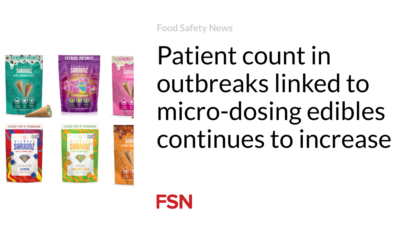Health
Eating carrots regularly is linked to a lower risk of heart disease and cancer

BAKERSFIELD, CALIFORNIA – MAY 26: Carrots being processed into baby carrots at Bolthouse Farms … [+]
Only 9% of Americans consume the recommended 2.5 cups of vegetables daily. But a good way to start is by eating baby carrots three times a week. This vegetable gets its vibrant orange color from a pigment known as carotenoids and according to a recent study of 60 young adults, eating baby carrots regularly will increase the levels of carotenoids in your skin, which is linked to increased antioxidant protection and reduced risk of cancer. heart disease and cancer.
“Previous studies have shown that carotenoid levels in the skin can be increased by consuming three times the recommended serving of fruits and vegetables every day for three weeks,” said Mary Harper Simmons, a nutritional sciences student at Samford University, in a press release. “Our findings suggest that a small, simple dietary adjustment – using baby carrots as a snack – can significantly increase the accumulation of carotenoids in the skin.”
The researchers recruited 60 young adults and divided them into groups. The participants underwent a four-week intervention in which they had to regularly eat apple slices, at least 100 grams of baby carrots, take a beta-carotene multivitamin or a combination of the supplement and baby carrots. Simmons and team used a spectroscopy instrument known as a “VeggieMeter” to measure carotenoid levels in the skin of each study participant, both before the study began and after the four-week dietary intervention ended.
The researchers noted that the group that took the beta-carotene multivitamin and ate 100 grams or half a cup of carrots at least three times a week had 21.6% higher skin carotenoid levels than before the intervention began. At the same time, participants in the group who only added baby carrots to their diet had a skin carotenoid score that was 10.8% higher than before. However, those who added only sliced apples to their diet or were in the group that took only the multivitamin saw no changes in their skin carotenoid levels.
In a press release, Simmons explained: “We found that the combination of baby carrots and a multivitamin supplement containing beta-carotene can have an interactive effect on the accumulation of carotenoids in the skin. To get a beneficial effect, people should choose a multivitamin containing beta-carotene, and remember to eat carrots at least three times a week.”
A few other fruits and vegetables that also produce carotenoids that give them rich yellow, red, orange or green colors include tomatoes, mangoes, oranges, peppers, watermelons, spinach, kale, yams and melons.
In a 2022 study published in the journal Trends in food science and technologywrote researchers: “The main sources of carotenoids are fruits, vegetables, algae, insects and fungi. Carotenoids contain oxygen, including lutein and astaxanthin. These two types of carotenoids, especially lutein, are the most important carotenoids in the prevention of serious diseases such as cancer of the heart – diseases and cataracts, and they also have excellent antioxidant, antimicrobial and anti-inflammatory properties.”
Simmons presented the findings of her research at the American Society for Nutrition’s annual meeting, Nutrition 2024, held in Chicago on July 2, 2024.













